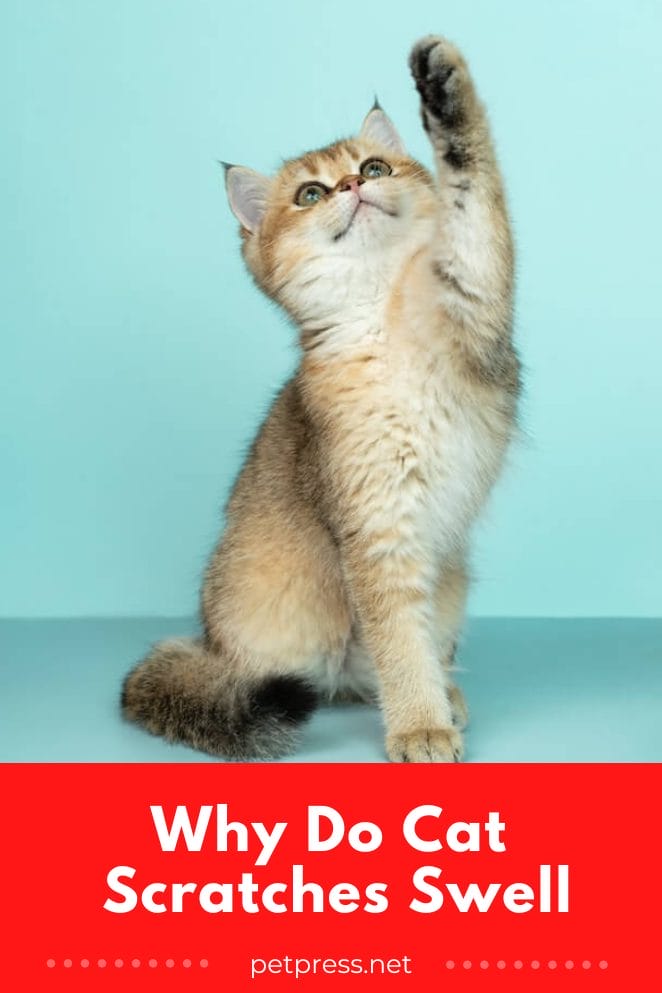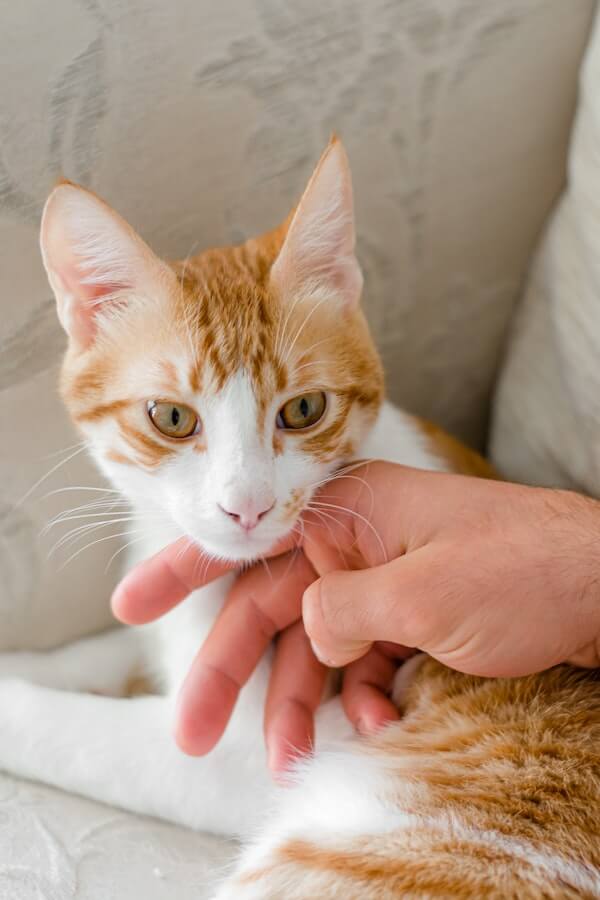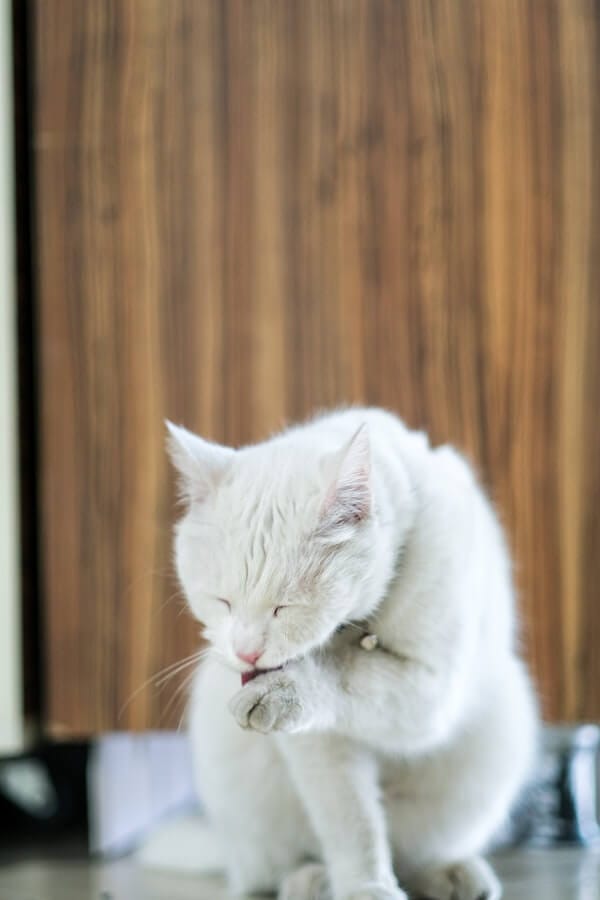
Cat scratches can swell up quite dramatically, especially when they’re done by a feisty feline. But why do cat scratches swell?
Cats are very territorial animals and will often use their claws to mark objects or people as their own. Their nails are sharp and can easily puncture the skin, which can result in swelling.
In this article, we’ll explore the different ways cat scratches can cause swelling. We’ll also look at how to prevent scratches in the first place so that you can avoid any discomfort or infection.
So read on if you want to learn more about why cat scratches swell!
Why do cats bite and scratch their owner?
If you’ve ever been on the receiving end of a cat scratch or bite, then you know it can be downright painful.
And while felines may have their cuddly moments, they are also capable of some serious aggression. So why do cats bite and scratch their owners? Here are five possible explanations:
1. Territoriality:
Cats are territorial creatures who value their personal space. If they feel threatened by an intruder (like you!), they may lash out with a warning bite or claw to protect what’s theirs.
2. Fear/Stress:
Some cats become stressed in certain situations and react by biting or scratching as an instinctive defense mechanism.
3. Unsocialized:
Cats that haven’t been socialized properly may be more prone to aggression. If your cat wasn’t handled during their kittenhood, they may not know how to act around humans and could lash out with a bite or scratch.
4. Anxiety/Pain:
Just like us, cats can become anxious in certain situations or when they feel pain. If your cat is feeling stressed or uncomfortable, it might react by biting or scratching out of fear or frustration.
There are several anxious cat breeds that might scratch people more due to their natural behavior.
5. Boredom:
Some cats just need something to do! If your kitty feels neglected, it may turn to destructive behaviors like biting and scratching in order to get attention — even if it’s negative attention.
Why do cat scratches swell?

If you’ve ever had the misfortune of being scratched by a cat, you know that it can start to swell up pretty quickly. But why do cat scratches swell? Well, there are actually several reasons for this.
1. Enzymatic reaction
Cats’ claws contain special enzymes and antigens which can cause irritation in humans. As a result of this reaction, our bodies recognize these compounds as foreign objects and activate an immune response. This leads to inflammation which causes swelling in the affected area.
2. Sharp Claws
Cats have incredibly sharp claws – even sharper than needles! No matter how gentle they may be when scratching your skin, their nails still penetrate deep into the flesh and create tiny cuts or punctures.
These wounds become inflamed and swell due to the presence of germs and allergens in the cat’s saliva or oils on its coat.
3. Tearing the skin
When cats scratch us, they tear off some of our skin cells and leave them behind in their claws. This causes an inflammatory reaction and can lead to swelling.
4. Skin reactions
When a cat scratches us, it’s actually leaving a mark on our skin – even though we may not be able to see it.
The act of scratching creates tiny channels in our skin that are visible under a microscope. These channels fill up with fluid, causing the area to swell up.
5. Histamine release
Last but not least, cats release histamines when they scratch us which causes inflammation and swelling.
Histamines are the same compounds released when we have an allergic reaction – so if you’re particularly sensitive to cat scratches, it’s likely due to a histamine release.
Do all cat scratches cause infection?

The short answer to the question “Do all cat scratches cause infection?” is no, not necessarily. The level of severity of a cat scratch can range from minor skin irritation to deep lacerations that may cause secondary infections.
Minor scratches only affect the uppermost layer of skin and are unlikely to cause any lasting damage or lead to an infection.
However, deeper scratches that penetrate the dermis can be more serious as they increase the risk of bacterial and fungal infections.
In these cases, prompt medical care is recommended as it’s important to properly clean and protect the wound from further damage.
So while all cat scratches don’t necessarily lead to infection, it’s important to assess their severity in order to ensure proper treatment is provided if necessary.
How do you get a cat to stop scratching you?
Cats can be taught not to scratch, but it will take some patience and dedication from you. Here are five tips to help get your cat to stop scratching:
1. Establish boundaries:
Determine which areas in your home the cat is allowed to scratch and which are off-limits.
Make sure they know where they can and cannot scratch by providing them with a scratching post by the area they may be tempted to scratch and teaching them how to use it.
If your cat is scratching furniture or carpeting, provide a deterrent such as double-sided tape or aluminum foil which they’ll find unpleasant to scratch.
2. Use positive reinforcement:
Praise your cat when it uses its scratching post. Give it treats for good behavior and pet it lovingly after using its scratching post correctly.
This will help reinforce that the appropriate place for scratching is on the post instead of on you or other furniture in the home.
Give your pet regular attention and playtime so they don’t feel neglected and develop aggressive behaviors such as excessive scratching as a result.
3. Distract them:
If your cat is in the process of scratching you, distract it with a toy or treat so that it stops and focuses its attention on something else (preferably the scratching post!).
Trim the nails regularly and clip off any sharp points that may be causing extra discomfort when they scratch you.
4. Be consistent:
The only way to get a cat to stop scratching you is by being consistent with training techniques. Every time they scratch you, firmly tell them “no” or spray them gently with water.
Make sure that everyone in your home is following the same methods so that there isn’t confusion for the cat.
5. Give them space:
Cats are creatures of habit and like having their own space without intruders invading it. However, cats also need some interaction with humans to keep them happy and healthy.
Keep an eye on your cat’s behavior and make sure to give it enough space when needed, as this will help prevent them from feeling the need to scratch you in order to protect its own territory.
Conclusion

Ultimately, cats are like any other pet in the sense that they require patience and commitment from their owners to be properly trained.
All cat scratches don’t necessarily lead to infection, but they may still cause skin irritation or deep lacerations which can increase the risk of secondary infections.
By establishing boundaries and using positive reinforcement techniques it’s possible to get a cat to stop scratching you.
With time and dedication, you too can have a well-mannered feline friend!
- 7 Dog Breeds With Webbed Feet And Why Do They Have Them - July 19, 2023
- 10 Best Fish For Small Tanks That Make Perfect Pets - July 18, 2023
- How to Breed Guinea Pigs: A Detailed Guide - July 17, 2023


GIPHY App Key not set. Please check settings